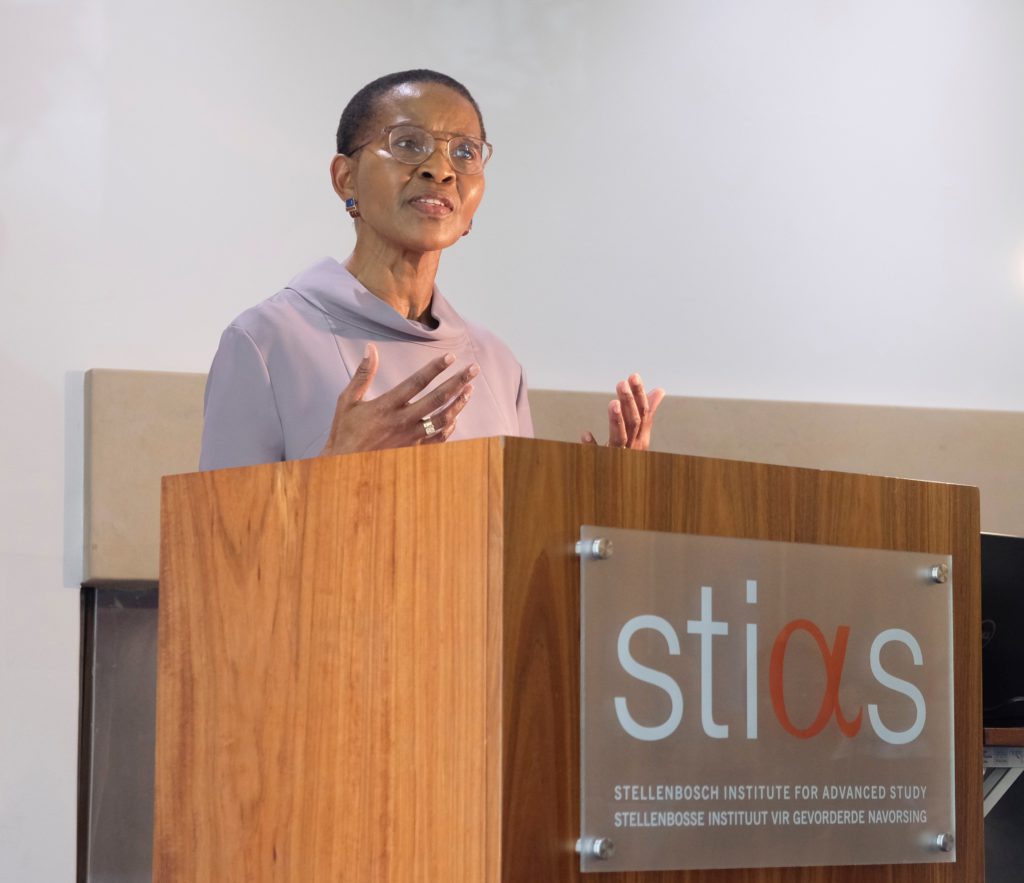Of blackness, whiteness and being human
“The experts said crimes against humanity cannot be forgiven. In fact, not only are these crimes unforgiveable, but they are also unpunishable. They were wrong about the former, and somewhat right about the latter. South Africa’s answer to these debates was the Truth and Reconciliation Commission (TRC), established to address apartheid crime and other violations of human rights committed in the fight against apartheid,” said Pumla Gobodo-Madikizela of the Centre for the Study of the Afterlife of Violence and the Reparative Quest (AVReQ) at Stellenbosch University. “The ideas embodied in the TRC were nothing less than an effort to imbue the realms of law, justice and politics with a relational cultural ethics of care (or Ubuntu) to recognise the humanity of victims and perpetrators alike, for the sake of a transformed conception of society – a courageous vision for social change and a different kind of future. Almost 30 years after the TRC was established, however, it is as if the present – the future that was imagined – is what we have seen before.”

Gobodo-Madikizela holds the South African National Research Foundation Chair in Violent Histories and Transgenerational Trauma and is the Director of the Centre for the Study of the Afterlife of Violence and the Reparative Quest (AVReQ). Between 1995 and 1998 she served on the TRC, chairing the Human Rights Violations Committee and its public hearings in the Western Cape. Since then, she has held professorships at three universities: University of Cape Town, the Free State, and now Stellenbosch.
She described her STIAS project as an attempt to think through “the current moment of unspeakable violence and the repertoires of historical trauma, and to deepen understanding of the cycles of transgenerational phenomena that play out in contemporary South Africa.”
“Overall,” she said, “I’m asking what we missed during the transition moment of the TRC, and why we didn’t see the present violence we are witnessing coming.” She argued that the current political time is a time with an unsettled present and future. “The past is not yet past, and the present may be the staging of the future to come. Under these circumstances, is forgiveness the right word to open the path toward new futures?”
Developing ideas
Gobodo-Madikizela traced the evolution of the ideas for her STIAS project through some of her many publications of which the most well-known is the award-winning, A Human Being Died That Night: A South African Story of Forgiveness. She explained that her early work celebrated the work of the TRC but she has begun to think beyond reconciliation and to focus on the cracks that have formed in South African society. Interviews with people who lived under apartheid and those born after 1994; work with Holocaust survivors; and, a project looking at acts of cruelty across generations have entrenched her understanding of intergenerational trauma.
“I have deepened my understanding and moved away from the forgiving focus. The TRC showed the space of possibilities – that something can emerge from encounters and trauma can be transcended. But the language of forgiving glosses over the work required for justice,” she said.
For her current project she is using the TRC archives and those of psychiatrist and political philosopher Frantz Fanon, specifically, his vision of human solidarity. She believes Fanon allows us the engage with both the black and white experience.
She also outlined her conceptual framework of triadic temporality which she recently described in the Journal of Social Dynamics as “a tri-directional perspective in which memory crosses and re-crosses past, present and future temporalities is proposed, and the movement and translation of memory between and across these temporalities are explained and conceptualised as a ‘triadic’ view of memory”.
In South Africa this refers to the lived experience of the present, the afterlife of apartheid violence and an unsettled, unknown future. Gobodo-Madikizela pointed out that current understanding of the transgenerational repercussions of violent histories fail to acknowledge that in cases of protracted violence, descendants of victims and survivors are not only personally confronted by the consequences of the violent oppression their forebears endured; but also experience the enduring structural realities of the socio-economic violence of the past directly. “In post-apartheid South Africa resonances in the violence with the system of oppression and domination have resurfaced in new ways,” she explained. “This issue of the translation of systems of domination from the past into the present, and the projection of these forms of repetition into the future, is what this book is concerned with.”
“I am not your white gaze”
Gobodo-Madikizela also related a personal incident that inspired the title of her presentation. The event occurred in 2020 in a street in Stellenbosch during which she was confronted with an attempt to misrecognise her. She asked herself what it would mean to engage with the person and to bring the person into conversation so that he might confront his own brokenness “What would it look like if that moment of encounter was also a moment of a reparation quest? What strategies might we use to resist the white gaze?”
She described the process as “acknowledging and reflecting on the violence of racism,” engaging a reflective gaze on racism “as an intergenerational post-apartheid phenomenon” in order to reclaim one’s sense of being human.
Gobodo-Madikizela spoke compellingly about the challenge of reclaiming one’s sense of dignity even in the face of negation and misrecognition of one’s identity. She said that in the quest to break the cycles of transgenerational transmission of violent pasts, imagining new futures requires “narrating ourselves anew”. “We have the possibility of making an impact in communities and institutions to develop a model of what is possible. We need to take those moments of possibility and translate them to actual change,” she concluded.
Michelle Galloway: Part-time media officer at STIAS
Photograph: Noloyiso Mtembu
